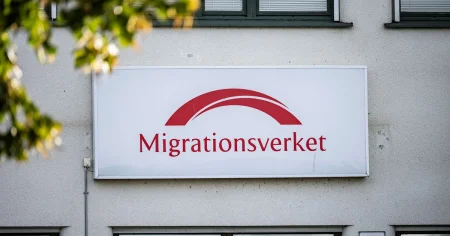The Swedish Mapping, Cadastral and Land Registration Authority (Lantmäteriet), a cornerstone of the nation’s infrastructure and development processes, has been embroiled in a significant scandal concerning the mishandling of sensitive information. Expressen, a leading Swedish newspaper, revealed that classified data had been left accessible within Lantmäteriet’s archives, and that customer service representatives had disseminated documents without proper confidentiality reviews. This revelation sparked a governmental inquiry and widespread public concern regarding the security of sensitive information. The gravity of the situation is further compounded by the fact that Ås Sivborg, the former Director-General of Lantmäteriet, had been alerted to these security breaches multiple times since assuming her position in 2018, yet seemingly failed to implement effective corrective measures. The delayed response to these repeated warnings raises serious questions about the internal oversight and accountability mechanisms within the agency.
The failure to promptly inform the government about the extent of the security lapses further amplified the controversy. Infrastructure and Housing Minister Andreas Carlson expressed his grave concern over the delayed notification, revealing that the government was only made aware of the issues in late March 2024. The subsequent discovery that the problems had been flagged much earlier prompted a stern response from the government, highlighting the seriousness of the breach of protocol and the potential compromise of sensitive information. Carlson emphasized the importance of transparency and accountability, stating that a thorough investigation would be conducted to understand the full scope of the issue and to implement measures to prevent future occurrences. The minister’s direct engagement with Sivborg and the Lantmäteriet board underscores the government’s commitment to addressing the security failings and restoring public trust.
The revelation that the security breaches at Lantmäteriet persisted for years before the eventual shutdown of the vulnerable e-service in late July 2024 further intensifies the criticism directed at the agency’s leadership. The parliamentary Civil Affairs Committee, tasked with scrutinizing the agency’s operations, expressed dissatisfaction with the responses provided by Ås Sivborg during her testimony. Committee Chair Malcolm Momodou Jallow articulated the committee’s concerns, emphasizing the unacceptable nature of the security lapses and the imperative to prevent future breaches. This parliamentary scrutiny adds another layer of accountability to the ongoing investigation, signaling the seriousness with which the government is treating the matter.
The aftermath of the scandal saw Ås Sivborg’s reassignment to a less prominent role within the government, a move often referred to as being sent to the “elephant graveyard.” This reassignment, while not explicitly a punitive measure, effectively removes her from a position of leadership and influence within the Swedish government. It signifies a clear acknowledgement of her failure to effectively address the security concerns within Lantmäteriet and highlights the government’s commitment to holding its officials accountable for their actions. This reassignment also serves as a cautionary tale for other government agencies, emphasizing the importance of robust security protocols and transparent reporting procedures.
The Lantmäteriet scandal underscores the critical importance of data security, particularly for government agencies entrusted with sensitive information. The agency’s failure to adequately protect classified data and its delayed reporting of the security breaches have eroded public trust and raised concerns about the potential consequences of such lapses. This incident serves as a stark reminder that cybersecurity must be a top priority for all organizations, especially those handling sensitive data that could be exploited for malicious purposes. The incident highlights the need for proactive security measures, regular audits, and effective incident response protocols to mitigate the risks associated with data breaches.
Beyond the immediate security concerns, the Lantmäteriet scandal also raises broader questions about leadership accountability and organizational culture within government agencies. Sivborg’s repeated failure to address the security vulnerabilities, despite numerous warnings, points to a potential systemic issue within the organization. The delayed reporting to the government further suggests a lack of transparency and a reluctance to acknowledge internal failings. This incident underscores the need for a culture of accountability within government agencies, where individuals are empowered to report concerns without fear of reprisal and where leadership takes swift and decisive action to address identified vulnerabilities. The Lantmäteriet case serves as a crucial learning opportunity for other government agencies to review their own security protocols, reporting procedures, and leadership accountability mechanisms. It emphasizes the importance of fostering a culture of transparency and proactive risk management to ensure the protection of sensitive information and maintain public trust.














